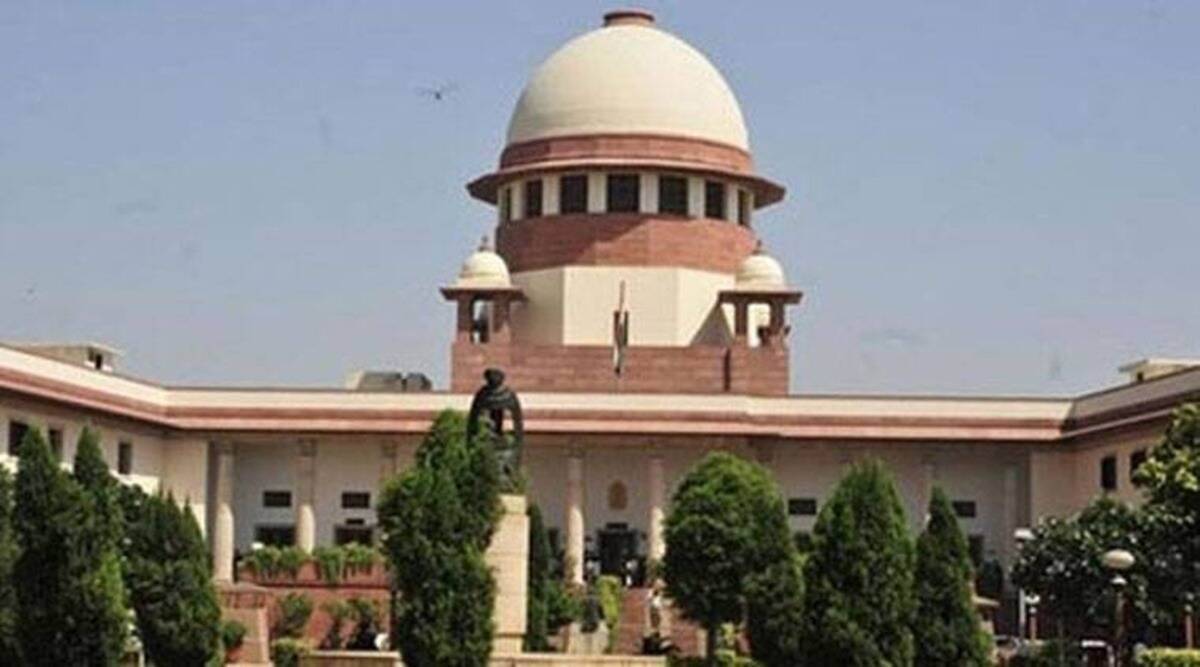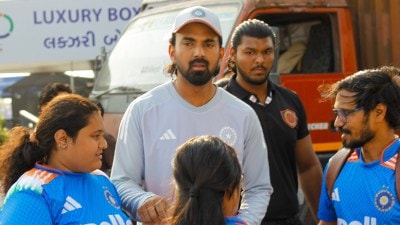SUPREME COURT on Tuesday expressed displeasure over the Centre changing its stand on a plea that sought minority status for Hindus in states and Union territories where their numbers have gone below other communities, saying the government’s latest affidavit in the matter “seems to back out of what was stated earlier” and it does not appreciate this.
“They have turned turtle,” said Justice S K Kaul, presiding over a two-judge bench, referring to the two affidavits filed by the Ministry of Minority Affairs on March 25 and May 9 in response to a petition filed by Advocate Ashwini Kumar Upadhyay, which has also challenged the government’s power to notify minorities under National Commission for Minorities Act, 1992.

In the March 25 affidavit, the Centre had sought to shift the onus of granting minority status on states, saying they too have concurrent powers to do so. However, in a fresh affidavit filed on Monday “in supersession of the earlier affidavit”, it said “the power is vested with the Centre to notify minorities”.
In the fresh affidavit, the government also said that the matter has “far-reaching ramifications”, and that it needed more time for discussions with state governments and other stakeholders.
Referring to the two affidavits, the bench, also comprising Justice M M Sundresh, said, “Another counter affidavit has been filed now… which seems to back out of what was stated earlier, something we do not appreciate.”
Expressing the court’s disappointment, Justice Kaul said, “…What I am not able to understand is (that) Union of India is not able to decide what it wants to do. All this thought should have been given before… This creates an uncertainty. And you know all this by its very nature comes into public domain before we put our eyes to it… So this creates its own dynamics.”
“How can in a matter like this an affidavit first be filed that the state and Centre both have powers? Now when he (petitioner) says state does not have power, you file an affidavit saying… I mean number of days were given to decide the stand.”
Story continues below this ad
On the prayer to grant more time for discussions with states, the court said, “If you want to consult states, you will have to take a call whatever… Solution can’t be, everything is complex, we will do so. This cannot be the answer from the Government of India. You decide what you want to do. If you want to consult, consult. Who is stopping you from consulting.”
The bench allowed the Centre’s request for time to carry out the discussions and fixed next hearing on August 30. The court also directed the Centre to file a status report “at least three days” before the next date of hearing.
“You will have to take whatever consultation etc…You will have to do some exercise,” said Justice Kaul.
Solicitor General Tushar Mehta, appearing for the Centre, replied that there was a meeting in which three Union ministers participated along with their respective secretaries. He also attended. “There was a detailed discussion. And what can be the potential or possible fallout one way or the other were discussed,” he said.
Story continues below this ad
Justice Kaul said, “Because of the diversity in our country, the principle which is sought to be propounded is what steps are being taken, to see that where a minorities commission protects the rights of the minorities, similarly in states where others may be minority, their rights are protected.”
But Upadhyay pointed out that his petition challenged the very validity of the National Minority Commission Act.
The petition relies on the 2011 Census of India, according to which Hindus are a minority in Lakshadweep, Mizoram, Nagaland, Meghalaya, J&K, Arunachal Pradesh, Manipur and Punjab.
Upadhyay contended that accordingly, Hindus should be given minority status in these states and UTs as per the 2002 T M A Pai ruling.
Story continues below this ad
Upadhyay first moved the Supreme Court in 2017 praying for appropriate guidelines for the identification of minorities and for quashing the central notification issued under Section 2(c) of the National Minorities Commission (NCM) Act declaring Muslims, Christians, Sikhs, Buddhists and Parsis as “minority” community. He pointed out that Jains were also added in the list in 2014, but not Hindus despite them being a minority in some states and UTs.
The court then asked him to approach the NCM which said that it “does not have the jurisdiction to deal with the prayer…” and that under Section 2(c) of the NCM Act, only the Centre can declare a community as a ‘minority’.
Upadhyay again moved the Supreme Court where a bench headed by then Chief Justice of India Ranjan Gogoi sought the assistance of Attorney General K K Venugopal.
But by the time it was listed next for hearing, CJI Gogoi had demitted office and the new bench headed by his successor CJI S A Bobde dismissed the plea without assigning any reasons.
Story continues below this ad
Following this, he again filed a petition in August 2020, also challenging the Constitutional validity of Section 2(c) of the NCM Act. The Supreme Court issued notice to the Centre in the matter on August 28, 2020.









